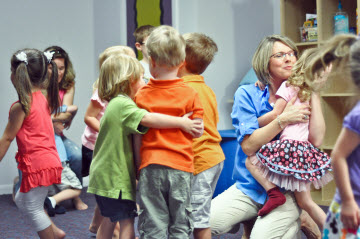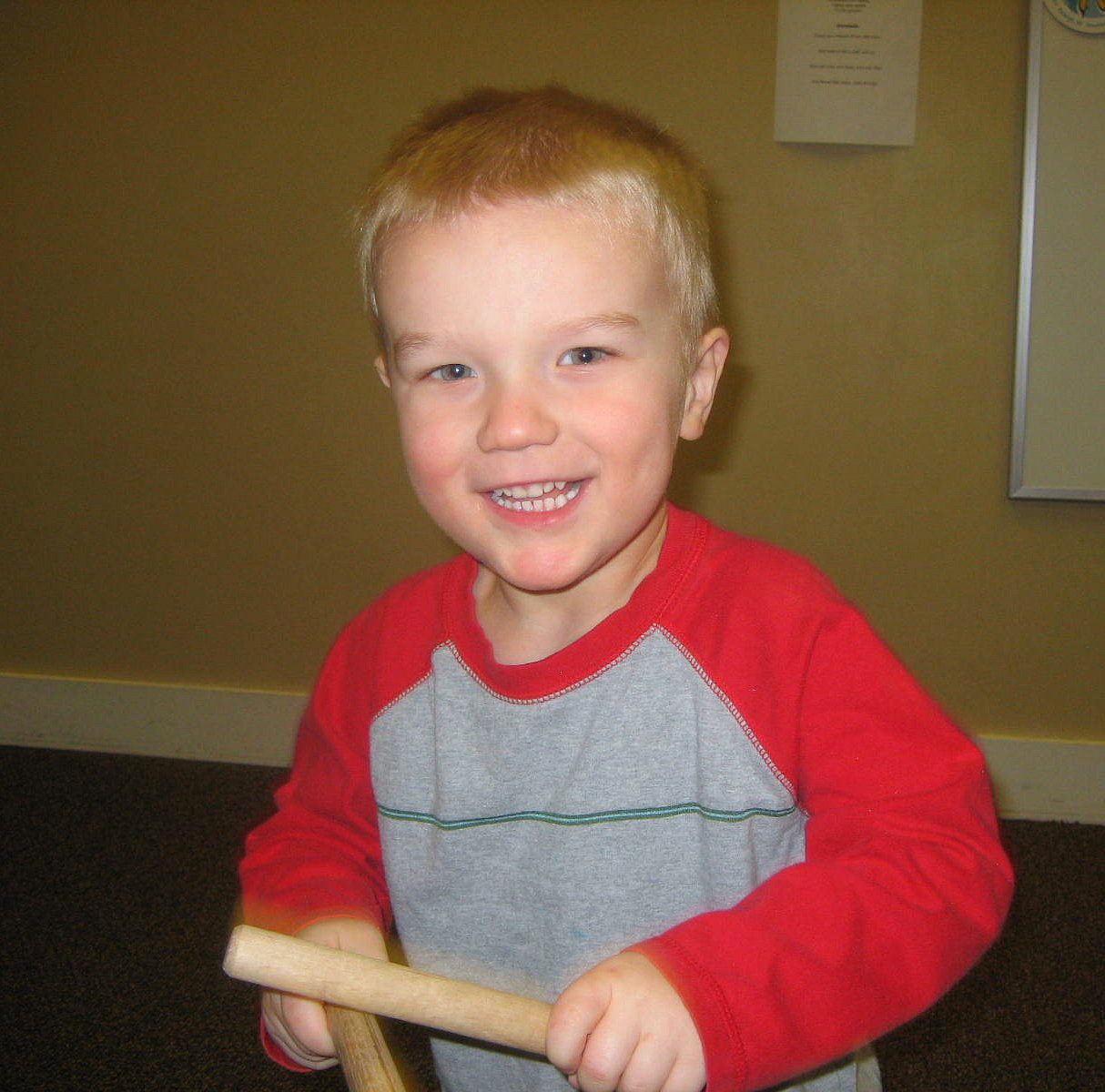 Happy. Well-adjusted. Confident. Shows empathy. Cooperates with peers. Has good self-control. Any parent would be delighted to hear this assessment of his or her child. These words describe the social-emotional skills that are so closely tied to success in school and success in life.
Happy. Well-adjusted. Confident. Shows empathy. Cooperates with peers. Has good self-control. Any parent would be delighted to hear this assessment of his or her child. These words describe the social-emotional skills that are so closely tied to success in school and success in life.
For young children, social-emotional development can be enhanced through age-appropriate group musical experiences, like those in the Kindermusik classroom.
From music skills to life skills…
Here are just a few examples of how music and movement classes improve children’s listening skills and support social-emotional development:
- Gathering time where the children informally explore instruments or play with special props gives lots of opportunity for practicing sharing… and resolving conflict when two children want the same instrument.
 Ensemble experiences help children to listen closely and work together as they play-along and sing-along together as a group.
Ensemble experiences help children to listen closely and work together as they play-along and sing-along together as a group.
- Waiting for a turn to explore a special instrument or to share an idea helps children learn self-control.
- Sitting on the Story Blanket during musical story time teaches children how to empathize (Where can Susie sit?), cooperate (Let’s make sure all of our friends can see.), and listen.
- “Stop and go” activities also give opportunities for children to practice inhibitory control in a fun way – including using the ASL sign for “Stop!”

- “Follow the leader” activities require children to listen and cooperate, take turns, and practice inhibitory control. You can practice this at home with an impromptu musical parade around the house as you take turns being the band leader.
- Circle dances require every one to move together in the same direction and at the same speed. But they also inspire a sense of community, belonging, and self-esteem.
- Listening to music, moving to music, and singing are ways children can communicate about their feelings, helping them begin to better self-regulate and providing them with a safe and creative outlet for self-expression.
Find out more about Kindermusik at www.Kindermusik.com.





